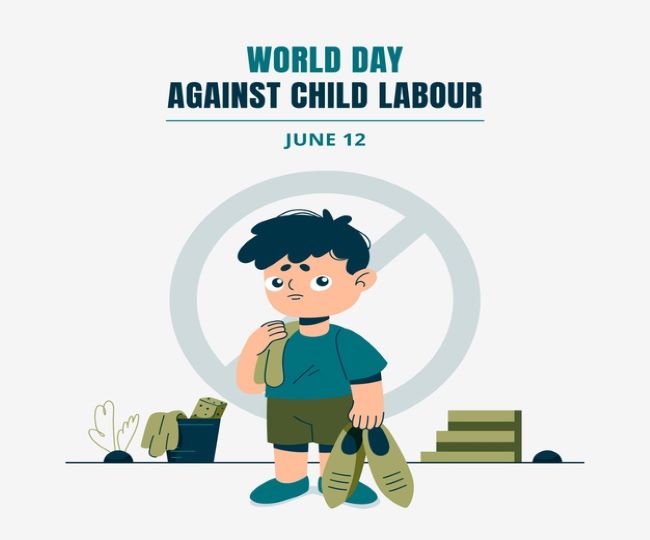World Day Against Child Labour: Every year on June 12th, the World Day Against Child Labour is held to bring attention to the problem of child labour and to support global efforts to end it. The International Labour Organisation (ILO), a United Nations organisation dedicated to advancing possibilities for employment and good labour, initially introduced it in 2002.
The purpose of the day is to raise awareness of the condition of child labourers and the value of safeguarding children’s rights. Child labour is any employment that robs children of their youth, prevents them from attending regular schools, and is bad for their mental, physical, social, or moral development. It includes both risky labour, which poses a particular threat to children’s health and wellbeing, and non-risky work that has an impact on their development.
Millions of youngsters are affected by the global problem of child labour. It is widespread throughout a wide range of sectors, including the informal economy, manufacturing, mining, and household labour. Children who work under exploitative conditions frequently experience little compensation, long hours, limited educational opportunities, and vulnerability to physical and psychological abuse.
Governments, employers’ and workers’ organisations, civil society, and private citizens join together on World Day Against Child Labour to spread awareness of the issue and take action. The day presents an opportunity to support laws and initiatives that uphold children’s rights, guarantee their access to a top-notch education, and encourage adult employment that is respectable.
Implementing and upholding laws and regulations, encouraging educational and career alternatives for kids and their families, offering social protection and support services, and creating collaborations among many stakeholders are all part of efforts to address child labour. To prevent child labour and advance ethical and sustainable business practises in global supply chains, international organisations, governments, non-governmental organisations, and private citizens all play critical roles.
By commemorating World Day Against Child Labour, we can support efforts to end child labour and build a society in which all children can enjoy their rights, receive a top-notch education, and have the chance to reach their full potential.
































